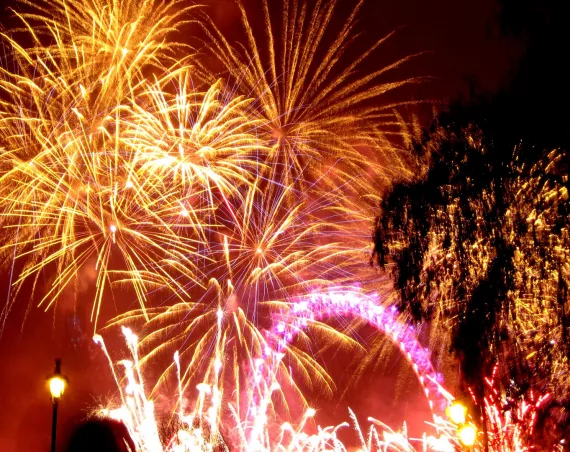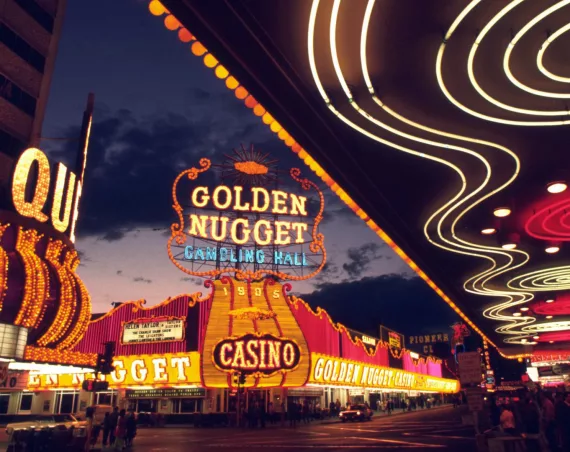
Song Lyrics – White Lion – Cry for freedom
Image by David Mark from Pixabay
Powered by RedCircle
Hello and welcome to Learn English Vocabulary. My name is Jack and I’m making this podcast for you to learn or revise English vocabulary.
Today, I want to make a podcast that was requested a few weeks ago by a listener from Ukraine called Edward. This request was for a podcast about the song Cry for Freedom by the band White Lion. I have quite a lot of suggestions and will try to work my way through them, but it may take me a while. But this song seems quite important at the moment so I’m happy to look at the lyrics. The interesting language in the song is mostly B1 so that’s the level of this podcast though there are a few more advanced items.
I hadn’t heard the song before I looked it up to make this podcast. It was released in 1989 when I was 10 years old. I was interested in music when I was 10, but I don’t think that this band was very popular in the UK.
It was quite unusual for a glam metal band to make songs with a political message, but Cry for Freedom was written about apartheid in South Africa and the oppression of the non-white people.
I will go through the lyrics explaining the vocabulary and trying to interpret the meaning as I go.
The song starts:
The fire is burning
We lay our weapons down to rest
This war ain’t over
‘Till all the people will be free
The fire is burning. The verb to burn is what fire does. You can burn things if you set them on fire or put them in a fire. We use the word to talk about injuries. If you hurt yourself by touching something very hot, that’s a burn. If a building is destroyed by fire, you can say that it burned down. If criminals steal a car and then set it on fire, afterwards, the car can be described as burned out. I think that I use the word most often when I’m cooking. I think I’m quite a good cook, but not when there are too many things to do at the same time. If I have too much to do, I might forget about something and leave it on the stove too long and burn it.
We lay our weapons down to rest. This is interesting for two reasons: the first is the word weapons which means guns or knives or other equipment you can use to hurt people. The second is the phrase to lay something down to rest. This is not a common phrase, but it’s used to say that someone has been buried after they have died. So, you could say the Queen was laid to rest in the chapel at the palace. It’s common to say that an army has laid its weapons down to say that they have given up fighting, but laid to rest is normally different.
I’m not sure what this means in the song yet. I think that the fire is the injustice, the conflict between the people, but I’m not sure if the next line means they have given up fighting or they have buried their weapons and that their weapons are people?
This war ain’t over
Till all the people will be free.
This is straight forward. The word ain’t is a strange contraction of is not. It is often thought of as American English and certainly originated there, but it’s quite common in informal language in lots of English dialects. I looked the origin up and apparently it comes from haven’t which became ha’n’t. You can hear this contraction some informal speech today. And eventually the h was dropped. Another website said that it comes from the contraction of am not. In British English, in question tags, we use are. So I might say “I’m late again, aren’t I?” But in Ireland, they would say: “I’m late again amn’t I?” Some websites say that amn’t is the origin of ain’t. Whatever the origin, it’s quite commonly used in informal English in the place of have not or has not, am not and are not.
These lines have not made the start any clearer, but on their own, it’s plain. The fire is the injustice and people are fighting – or resisting without weapons and they won’t stop fighting, this war, until everybody is free.
The next verse is:
Straight from our hearts we cry
This war has stolen too many lives
Cause for the sake of freedom we
Will die
Straight from our hearts, we cry. This means that the cause of the suffering is deep and personal. This war has stolen too many lives. This is a sad statement that can be made about any war. I feel a bit insensitive reading this with my English teacher hat on, but this is a language podcast so … Notice the use of present perfect. This war has stolen. Stolen is the past participle of the verb to steal, to take without permission, like a thief of burglar does. We often use the verb with lives to say that people have died too young, that their lives, their futures have been stolen from them. In the song, the present perfect is used because the war is not over. The war is still stealing lives.
Cause for the sake of freedom we will die.
This line has some more advanced vocabulary. Cause is just a contracted form of because. Sake is more advanced. Sake is a noun, and it means purpose or reason. I think it’s always used to say why you are doing something, it’s for the sake of your health or for the sake of the environment. Most commonly, we use it to say that we are doing something for someone, because we think it will help the person or the person needs this. You need to stop fighting for the sake of the children. You need to stop smoking for your own sake. In the song, the line is for the sake of freedom, we will die. So this means the same as we will die for freedom.
In the next section of the song, they sing:
Our songs will carry on
Oh lord we try, we try
To keep our dream alive
And voices will be heard
All around the world
Our songs will carry on. I think that our songs in this sentence means our pleas, our demands for freedom. Oh lord we try. This could either be a prayer, Lord is often used to mean god or it could be an exclamation. People say, ‘oh lord’ and ‘oh god’ just to express anger or frustration. We try to keep our dream alive. A dream is normally what you experience when you are asleep. The weird experiences, that feel a bit like being awake, but often odd, you have when you are sleeping. At least, my dreams are always weird. But dreams are also future plans that we really, really want to happen, but that we are not confident about. Young people might dream about being a professional footballer or becoming a famous movie star, for example. If you keep a dream alive, you stop things that would make it impossible. So, when I was a child, I wanted to be a pilot. But that dream ended when I grew up a bit and needed glasses. Perhaps I could have had laser treatment on my eyes and that might have kept my dream alive.
And voices will be heard around the world. Literally, your voice is your ability to speak. If you have a very bad cold, you might lose your voice. If you hear people talking in the distance, but you don’t know who they are or what they are saying, you might say: I can hear voices. So voices can mean people speaking. In the song, it means more than the ability to speak, it means the words and ideas of lots of people. We use the word voice to mean expressed opinion. So sometimes politicians are accused of not listening to the voices of young people. This means more than the noises they make, it means to their opinions. So in the song, it means the ideas and opinions that people are sharing all around the world.
Next we have the first chorus which is just the lines:
So stand up and cry for freedom
And keep the dream alive
The phrasal verb stand up, normally means to move from sitting to standing. However, it can also mean to defend something. If you stand up for someone, you defend them. So if you are in a class and the teacher says something mean to a learner, perhaps they dismiss a learner’s suggestion unfairly and you defend them, you are standing up for them.
So stand up and cry for freedom. This is another interesting choice. You can shout for something or yell for something. But if you cry, it carries more emotion. Normally, the word cry means to sob because you are very sad or hurt. Babies cry when they are hungry. Adults cry when they are very upset about things. If you cry for something, it doesn’t mean sob, but the meaning is connected. You call or shout for something when you cry, but with added emotion, you cry for things when you are very emotional or because they are very important to you.
The next verse starts:
Our brothers in prison
But no crime was ever done
I call it racism
Ashamed, I face my fellow man
Prison is the building that criminals are put in. You might also hear the word jail. The words prison and jail are often synonyms, but jail is normally where people are locked up before they have been to trial. If you commit a crime, that is you do something that is against the law, you can be arrested by the police and put into a jail. When you see the judge in a trial, if the crime is serious, they will sentence you to prison, and you will be taken to a larger building where prisoners are locked up.
Racism is treating someone differently because of their race, most commonly the colour of their skin, but race is complicated and there are lots of ways that people have suffered racism.
The next line is: Ashamed, I face my fellow man. This is a hard sentence. If you are ashamed, you feel guilty and embarrassed about something you have done. The word face is quite complicated. Normally, it is the part of your head with your eyes and features. If you face something, you direct your face towards it. If there is something horrible in front of you, you might turn your head so you’re not facing it. So if you do face a situation, it means to accept that something is true or happening. Sometimes people say face up to something. Perhaps you have a problem with gambling or drinking but you refuse to accept that you have a problem. You won’t be able to solve the problem until you face up to the situation. In the song, the singer is ashamed when he faces his fellow man. Fellow is an adjective to say that someone in the same situation as you. So at university, you have fellow students. If you are on a train, you should be respectful towards your fellow passengers. Ashamed, I face my fellow man. I am ashamed because I am a man, I am a human and my fellow man, my brothers, my friends and family are behaving in this way.
The next lines are:
The children are taken away
And families destroyed
And millions have died from starvation
We can’t go on this way
The verb destroy means to break something completely so it can’t be repaired. Bombs destroy buildings. Violence destroys lives. In apartheid South Africa, black people were imprisoned, and families were destroyed.
The next line took me by surprise. And millions have died from starvation. If you starve, you suffer because you don’t have food. Starvation is the general noun. In 1985 there was a famine in Ethiopia and about 1 million people died of starvation. I remember the news stories on TV. The images were terrifying and confusing to me at the time.
The line: we can’t go on this way means to continue doing what we have been doing. It means we need to change. To go on means to continue without change. So we can’t go on this way means we have to change.
The last part of this verse is:
Oh lord we pray, we pray
That maybe soon someday
The world will smile again
And they shall be released
Oh Lord – this time it’s a prayer for sure. Oh Lord we pray. If you pray, you try to send a message to god. Often people pray for something or someone. If someone is sick or having problems, you might pray for them. If you pray for something, you ask god to make something happen. In the song, the band prays that soon, the world will smile again. Usually, you smile with your mouth. To smile is to show on your face that you are happy. The last line of the verse adds they shall be released to the prayer. This means they can leave the prisons and go back to their families.
The song continues with lots of choruses.
So stand up and cry for freedom
And keep the dream alive
And ends with the lines:
Yeah, stand up and cry for freedom
And let ’em know that we are here
Oh no, we can’t go on this way
And we will never give up
Fighting for freedom
Yeah, and we will keep this dream alive
We will never give up fighting for freedom. I can see why this song was suggested by Edward. The message for people in Ukraine must be very important. I hope that the meaning of the lyrics gives you the courage that the band intended all those years ago for a different fight for freedom.
I’m going to embed the video for this song on the page for this podcast on Learn English Vocabulary. I hope that you can listen to the song and better understand the lyrics.
Thank you for your request, Edward.
I have been working on a podcast on the film 300 that was requested by Antonio, but there’s so much language that the podcast was going to be way too long. And I have got a long list of songs to talk about that have been requested by different listeners. Thank you for your comments on Apple podcasts and on the Learn English Vocabulary website. It really does mean a lot to me to hear that you appreciate these podcasts. And though I already have a lost to get through, please do continue to send me suggestions and requests and although it might take me a while to make it to your topic, I will be … eventually … delighted to make a podcast for you.
Thanks for listening.




